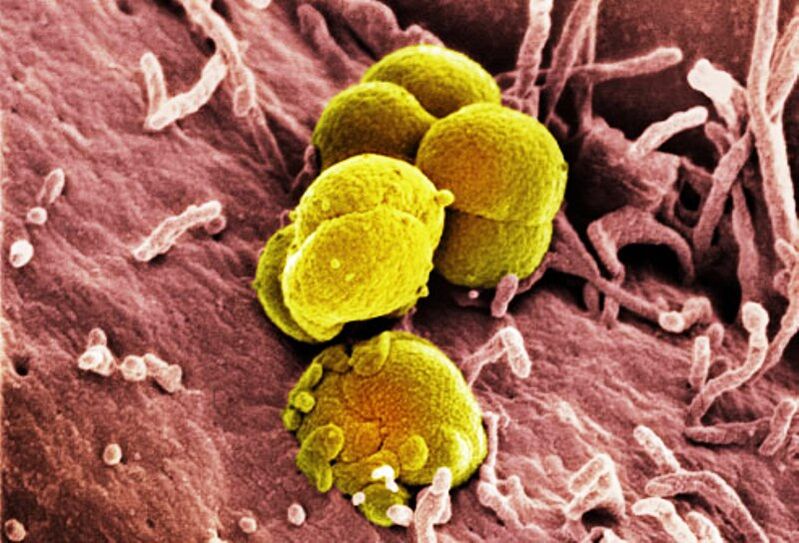Chronic prostatitis is an inflammatory process of the prostate gland in a man with a long duration (more than six months).
Usually this pathology is the result of an infectious process.
Treatment of chronic prostatitis aims to eliminate the causative agent of the infection.
Lack of such treatment can lead to the development of various functional disorders and complications, up to male infertility.

Causes of chronic prostatitis Various pathogenic (pathogenic) microorganisms lead to the development of inflammatory reactions with a long period of time.
There are 2 main groups of chronic prostatitis pathogens:
- Bacterial infections are not specific- Pathogenic microorganisms that can cause inflammatory reactions in different organs, including streptococcus, Escherichia coli, Klebsiella, Proteus, Staphylococcus.
- Specific infections.Parasitic pathogenic microorganisms only on the structure of the urogenital tract of a man (chlamydia, ureaplasma, Trichomonas).
Knowledge of the causes of the development of chronic inflammatory processes of the prostate is required for subsequent etiotropic therapy options.

It aims to destroy pathogenic pathogens.
Other factors can also be the cause of the development of chronic prostatitis.
Blood stagnation in the small pelvis causes insufficient oxygen exchange in the organ tissues.
This affects regrowth and resistance to infection.
Decreased protective function of the body in general provokes the development of inflammation.
Lack of physical activity adversely affects human health and causes a decrease in the body’s defenses.
Factors that lead to the development of chronic prostatitis include problems in the intimate life of the patient.
These are sexual disorders without ejaculation, irregular sex life, long periods of abstinence.
The consequences of trauma often affect the condition of the genitals.
Overwork, stressful situations can, along with other reasons, cause problems in the prostate.
Drinking alcohol and smoking in large quantities cause dysfunction of the reproductive system in men.
Classification of prostatitis
There are three types of disease:
- Bacteria;
- Not bacteria;
- Prostatodynia.
The first type is characterized by the detection of microorganisms in the disposal.
To treat this variety, antibacterial drugs are needed.
A non -bacterial condition is a condition in which there are no bacteria in the secretions of the gland.
Prostatodynia is a process when a patient shows a characteristic complaint of prostatitis, but there are no abnormalities in the analysis of prostate secretions.
Treatment of chronic prostatitis with concomitant pathology
Patients with prostate problems often face other problems.
These can be cardiovascular diseases, diseases of the respiratory and digestive systems.
For these patients, the therapy regimen will be different.
To properly adjust treatment, it is necessary to undergo an accurate diagnosis.
For such case consultations, narrow experts may be involved.
Treatment of chronic prostatitis in young people
By the age of 30, infectious agents are often the cause of prostatitis.
This is due to the lifestyle of young people.
Treatment of bacterial and viral infections is unpredictable affect.
A tapered sex life, neglect of hygiene and an unstable lifestyle play a role.
Patients rarely see a doctor at the first sign of illness.
The disease persists, becoming chronic.
It is necessary to pay attention to this problem and minimize the risk of its effects.
For preventive purposes, an annual inspection is recommended.
Obesity treatment
Problems with extra pounds can have a negative impact on a man’s internal organs.
Elevated cholesterol, blood pressure and glucose levels cause metabolic disorders.
Lack of constant physical activity causes blood stasis in the pelvic organs and contributes to the development of inflammation.
Weight loss and timely prevention can have a positive impact on overall health.



























